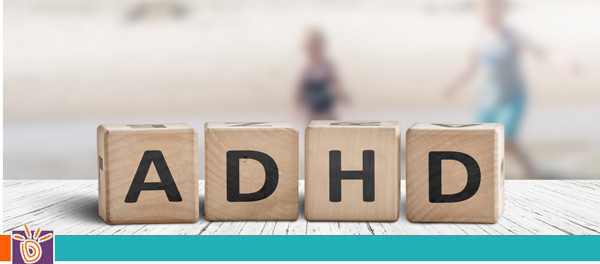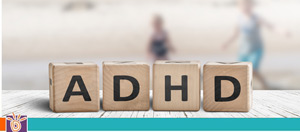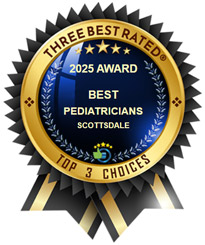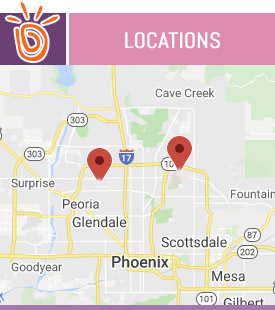ADHD Testing for Kids in Scottsdale, and Glendale, AZ
A child is considered to have ADHD if he or she exhibits many or all of the symptoms for a duration of six months or more. There isn’t a quick test to identify whether or not your child has ADHD, but a medical professional can provide a reliable diagnosis after a thorough evaluation. A physical examination may be part of the evaluation to help determine other potential reasons for the symptoms. Substantial amount of data has also been gathered from various sources. Dr. Maria Nabong, MD offers effective ADHD testing for children at KidsHealth Pediatrics. For more information, please contact us or make an appointment online. We are conveniently located to serve you in Scottsdale, and Glendale, AZ.




Table of Contents:
How do I get my child tested for ADHD?
At what age should a child be tested for ADHD?
What are the symptoms of ADHD in children?
What to do if you suspect your child has ADHD?
Attention Deficit Hyperactivity Disorder (ADHD) is a common neurodevelopmental disorder that affects children and adults. As a parent, it can be overwhelming to navigate the diagnosis process and find the right resources to support your child.
If you suspect your child has signs and symptoms that are associated with ADHD, it is best to contact our pediatrician clinic Kids Health Pediatrics to set up a consultation appointment with our resident pediatrician Dr. Maria Nabong. Dr. Maria Nabong will accurately run tests and be able to help determine the most accurate diagnosis for your child based on the signs and symptoms they are showcasing, as well as previous background information and anything else that may be requested.
Children with ADHD often show symptoms at a very young age. Parents may notice that their child is more active, talkative, or impulsive than a sibling or playmate, or has difficulty listening or following directions.
Children can be screened for ADHD starting at age four. Some children are assessed in kindergarten or first grade. Many parents wait to be evaluated until symptoms create difficulties at home and school.
Parents should speak with their child’s doctor if they have any concerns. A healthcare provider may evaluate or refer parents to a child ADHD specialist. If the child has difficulties in school, the school can also conduct an educational assessment to make educational arrangements. Children attending federally funded schools have educational rights, including assessment.
There are many specialists available in Scottsdale, and Glendale AZ; however, the pediatricians at Kids Health Pediatrician are one of the top pediatricians that can help properly diagnose your child. When making an appointment for a consultation, you may ask how we evaluate a child for ADHD, which will give you the peace of mind needed knowing you are seeking out a qualified, respected, and professional pediatrician.
Recognizing the signs and symptoms of ADHD in your child is the first step in the diagnosis process. It is important to keep track of your child’s behavior and discuss any concerns with their healthcare provider. Seeking professional evaluation and diagnosis from a qualified healthcare professional is crucial in obtaining an accurate diagnosis. It is also important to understand the different types of ADHD, including the predominantly inattentive type, predominantly hyperactive-impulsive type, and combined type. Each type has its own set of symptoms and may require different treatment approaches.
A few of the top symptoms and signs of a child with ADHD include:
1. Daydreaming
2. Forgetful
3. Issues with organizing tasks
4. Not paying attention to details
5. Fidgeting and/or squirming
6. Very often leaving their seat
7. Struggling to get along with others
8. Doesn’t think of the consequences of actions or decisions
9. Excessively talking
10. Issues with resisting temptation
ADHD is a neurodevelopmental disorder that affects a child’s ability to focus, control impulses, and manage hyperactivity. According to the American Psychiatric Association, ADHD affects approximately 8-10% of school-aged children. The symptoms of ADHD can vary from child to child, but common characteristics include inattention, hyperactivity, and impulsivity. To diagnose ADHD, healthcare professionals use a set of diagnostic criteria outlined in the Diagnostic and Statistical Manual of Mental Disorders (DSM-5). The evaluation process typically involves a comprehensive assessment of the child’s behavior, medical history, and family history. It is important to note that ADHD is a clinical diagnosis, and healthcare professionals use their clinical judgment to make a diagnosis.
Developing a treatment plan with healthcare professionals is essential in managing ADHD symptoms. Treatment may include medication and lifestyle modifications. Lifestyle modifications may include changes in diet, exercise, and sleep habits. Parents can also seek support from community resources and support groups. These resources can provide valuable information and emotional support for both parents and children. It is important to remember that managing ADHD is a team effort, and seeking support from healthcare professionals, family, and friends can help parents navigate the challenges of raising a child with ADHD.
If you or someone you know have symptoms like hyperactivity, a lack of impulse control, or difficulty concentrating, it may be necessary to arrange an ADHD examination. ADHD testing is available at KidsHealth Pediatrics. For more information, please contact us or make an appointment online. We are conveniently located to serve you in Scottsdale, and Glendale, AZ. We serve patients from Glendale AZ, Peoria AZ, Sun City AZ, Scottsdale AZ, North Scottsdale AZ, Grayhawk AZ, and surrounding areas of Phoenix AZ.

Additional Services You May Need

Additional Services You May Need









